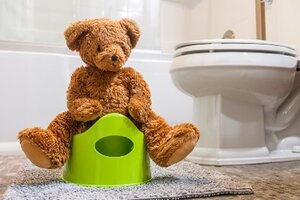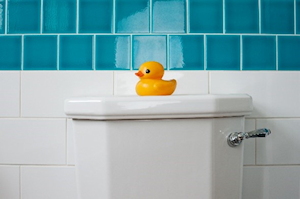Toileting and Autism

Benefits of Toilet Training
Being toilet trained is an essential step in personal independence. There are many benefits to becoming toilet trained such as:
- For your child to have a sense of independence and their needs
- Taking part in a wider range of activities and therefore having social opportunities for interacting with others
- Time and financial savings for care givers e.g., with the cost of nappy changing and related supplies.

Toilet Training and Autism
It is common for autistic children to experience challenges with toilet training. Many autistic children learn how to use the toilet at a later age. Alongside this, there are certain behaviours that can arise such as a reluctance to use the toilet or withholding to passing urine or poo.
Whilst each child will have different difficulties, there are some common issues that arise with autism and toilet training. Understanding these areas will help to identify ideas to meet your childís needs.
The following factors can influence toilet training:
Communication:
- Your child may not be able to let you know they need the toilet or understand you when you are trying to teach them the steps.
Sensory Regulation:
- Many autistic children experience sensory sensitivities and need support to regulate.
Physical:
- Children that have delays in their development can need support with their motor skills. There can be difficulties with posture or sitting balance. Support may be needed for dressing skills for toileting.
Social Motivation:
- An autistic child may be less likely to show interest in watching or imitating their peers use the toilet. They may also be less responsive to social rewards, such as praise for successful toileting.
Need for routine:
- Your child may crave the need for routine and predictability. There may be a resistance from transitioning form using nappies to using the toilet.
- Some children might learn to use the toilet at home/nursery but cannot use toilets outside of their routine e.g., at a restaurant.
Fear and Anxiety:
- Some children are afraid of the bathroom or having to complete a new task. They may have had a negative experience prior e.g., painful constipation, which impacts on their bowel movements and willingness to toilet train.
You can find out more about this in the videos below.
You can click here to read a written transcript of this video.
The senses and toileting
You can click here to read a written transcript of this video.

Before you start - key points to remember
- Work on one thing at a time and take it step by step.
- Prioritise. What is more important? Is it realistic to do this now?
- Expect changes will be gradual and celebrate small changes and achievements.
- Look after yourself in order to be able to look after your child.
- Be consistent! Liaise with your nursery and school to make sure you are both implementing strategies.
Are you ready for toilet training?
You can click here to read a written transcript of this video.

Starting Toilet Training
There are a few stages to consider when starting toilet training which are planning, preparing and starting.Planning - Ready

To plan for toileting, itís beneficial to think about routines, the environment and what you might need to start. For example, you might want to track when your child is using the toilet using a toilet diary, such as this one.
You may also wish to begin preparing your child for the process using books or cartoons, such as this one, called Tomís Toilet Triumph.
You can click here to read a written transcript of this video.
Preparing - Steady
 Once you have decided on a potential routine there are a few things that can support. These include visuals, of which you can download a printable example here.
Once you have decided on a potential routine there are a few things that can support. These include visuals, of which you can download a printable example here.
You can click here to read a written transcript of this video.
Starting - GO!
 When you feel ready to start there are a few first steps that you can consider starting with, such as changing the nappy near the toilet, or getting your child to sit on the toilet.
When you feel ready to start there are a few first steps that you can consider starting with, such as changing the nappy near the toilet, or getting your child to sit on the toilet.You can click here to read a written transcript of this video.
Potential Barriers to Toilet Training
There are potential barriers that may need extra support when you are toilet training. Whilst it is important to consistently try strategies over time, you may need to consider other options e.g. for constipation.
You can click here to read a written transcript of this video.
What Next?
- Come to a Next Steps Session. If your child is currently being supported by the social communication team, then, once you have watched the videos above and tried some strategies, please sign up for a Toileting Next steps session to discuss your questions and queries with members of our team, along with other families facing similar challenges. You can find dates and details of how to book here.
- You can also access further advice from the following sources:
- The National Autistic Society offer this toileting guide for parents and carers.
- ERIC is a charity which offers a lot of advice and support around toileting. You can find a lot of information on their website including about their free telephone helpline.
Last updated10 Sep 2025


